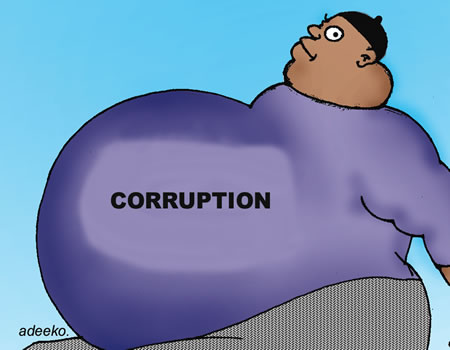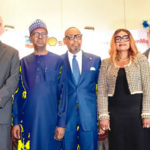
It has been said that power corrupts, but absolute power corrupts absolutely. In a country like Nigeria, the power to govern the people is vested in one person- the president. The constitution of the Federal Republic of Nigeria categorically gives the power of the executive to the president. But the president as the head and Commander-In-Chief cannot steer the affairs of the country all alone. Hence the constitution again, conscious of this responsibility and fact that the president cannot do it alone, requires that ministers, heads of government agencies, commissions, other parastatals and advisers be appointed to help the number one citizen carry out those responsibilities of executing all the government activities.
Presidential poll: Tribunal slates Sept 13 to decide Buhari, Atiku’s…
One of the cardinal agenda of President Muhammadu Buhari is fighting corruption to the minimum. The president was even quoted as saying, “if we don’t kill corruption, corruption will kill us.” It is true that corruption is one of the main challenges our dear country is facing. Also, there are efforts by the government through the Economic and Financial Crimes Commission, (EFCC), the Independent Corrupt Practices Commission (ICPC) and other anti-corruption agencies to bring this monster to its knees.
There is no gainsaying that the EFCC has achieved so much in the fight against corruption, though the task ahead is more challenging than the one we are facing for the reasons that as the EFCC fights corruption, corruption too is fighting back and two, there is always a change in technology where the corrupt seem to be a step ahead to avoid arrest and prosecution. The laws or rather the court too has been a challenge in the fight against corruption as it has been agreed even by those in the judicial system.
Almost all the challenges this country is facing are attributed to corruption; from the leadership and governance challenges to the provision of basic social amenities by public office holders. We are all witnesses to the devastating effect of insecurity in Nigeria. People are being kidnapped on a daily basis while others are killed in their farms by armed robbers and bandits. The ordinary citizen on the street is mainly the one who pays all the price of corruption. It hits him through bad roads, poor health facilities or even none, lack of educational facilities, lack of this and lack of that and most of all, there is the lack of security of their lives and properties, hence the quote by Pope Francis against corruption when he said “corruption is paid by the poor.”
It is my hope that for us as a country to effectively win the fight against corruption, the most important thing to first of all do is to collaborate. As citizens who pay the price of corruption, we all have to collaborate with the relevant agencies. The judiciary, the security agencies, civil society organizations, the international communities must all come together in this fight against corruption. We should all volunteer to give information on any suspicious corrupt activity by suspects. We should not engage in any form of corruption, and we should also report any act of corruption.
Abbas Abubakar Umar,
sabbarakabuba@gmail.com
WATCH TOP VIDEOS FROM NIGERIAN TRIBUNE TV
- Let’s Talk About SELF-AWARENESS
- Is Your Confidence Mistaken for Pride? Let’s talk about it
- Is Etiquette About Perfection…Or Just Not Being Rude?
- Top Psychologist Reveal 3 Signs You’re Struggling With Imposter Syndrome
- Do You Pick Up Work-Related Calls at Midnight or Never? Let’s Talk About Boundaries






